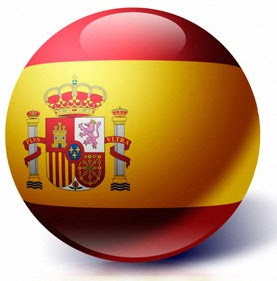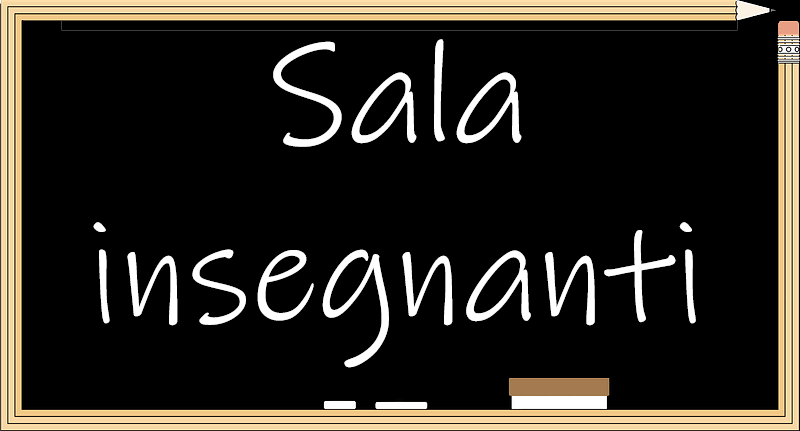Italy

The Istituto Comprensivo via della tecnica is situated in Pomezia, a recent industrial area near Rome, populated above all by pendulum workers coming from south Italy, East Europe and Africa since the Sixties. It is composed by six branches, one in the centre of the city and the others in the country around.
Nowadays many families are living difficult situations because of crisis in important industries of the city.
The school includes many students with special educational needs and at risk of social exclusion so we would particularly benefit by the collaboration with EuropeanComenius partners to improve our activities for inclusion.
This is our first Comenius project, we need to build an European dimensionin a city without common cultural and historical roots. In the project we have the role of second coordinator and will be responsible for developing the European Games Guide, including in the activity our students with special educational needs.
Spain

Carlos Cano Secondary School is located in Los Barrios, Cádiz, in the south of Spain. Los Barrios is a small town in the Strait of Gibraltar, so we are very near of Africa. The two nearest big cities are La Línea and Algeciras. There is an English colony next to La Línea called Gibraltar, where there is an airport.
Los Barrios has approximately 22.000 inhabitants in several districts as Los Barrios town, Palmones, and Guadacorte, and the people are very friendly. The town is well connected by bus to Algeciras, where you can find a bus station, a train station and a harbor.
Los Barrios is also located in the Natural Park of Los Alcornocales, so we are surrounded of beautiful landscapes, as well as we have an environmental conscience. In addition, we are very near to the “Parque Natural del Estrecho” in the Algeciras Bay.
In our school there are around 550 students from 12 to 16 years-old, who live in town, except a few of them who come from rural areas. Only the 5% are immigrants from foreign countries such as Morocco or Great Britain. From our 44 teachers in total.
Our school has a Bilingual Project since the year 2008-2009, and nowadays we have 4 groups of students who receive bilingual education in several subjects such as: Natural Science, Social Science, Maths, Music and Physical Education. It has got 12 years of experience. Its vision is to prepare our students for academic and professional life as cultured, internationally aware, creative, productive, communicative and competent in information technology. Additionally,the more important vision of our school is to create global citizens who adopted the sustainable motto of loving and saving the environment not only in their country but also all around the world. Thanks to the project, the students will have a chance to fulfill the school’s vision.
United Kingdom - Northern Ireland

Saint Patrick’s Primary School is a co-educational school Dungannon. It provides an attractive, secure, well-maintained environment for the children who attend the school. The current enrolment is 792. This includes 78 pupils in Nursery, 22 pupils in 3 Learning Support Classes, (including 10 pupils in the Speech and Language class) and 25 classes from P1-P7. In all there are 41 teachers and over 30 classroom/domestic assistants. In addition there is a computer technician/library assistant, 2 secretaries and a full time caretaker. The children within the Learning Support Classes and the Speech and Language class are taught by specialist teachers who are trained and experienced in meeting their individual needs and supported by classroom assistants.
Our nursery classes were opened in 1999 – each with 26 pupils enrolled – two within refurbished, purpose built accommodation within the school and another in a purpose built outreach centre in the west of the town. The school is very well resourced. Each classroom has an interactive whiteboard.
The current number of EAL pupils is 477. There has been a huge influx of migrant workers arriving in Dungannon over the last seven years. Dungannon is an industrial town and the workers are attracted by the many job opportunities which exist in the local area. Generally the pupils arrive with no English but within six months, the majority are able to converse with their teacher and peers. There is a huge amount of support for these children and their families to ensure that they feel welcome and settled in their new surroundings. There are 3 full time teachers and three classroom assistants whose role is to provide additional support to these children. The majority of the children come from Lithuania, Poland, East Timor and Portugal.
Cyprus

Linopetra Gymnasium is a public, lower-secondary education school, located in the Agios Athanasios area in Limassol. With 501 students and a teaching staff of about 70 people, it is one of the biggest gymnasia in the country. The local students come both from the city and the villages in the area. There are also more than 60 students from 15 different countries. These students speak different languages and have different cultures. Because of its location and student population the school was included in the Zones of Educational Priority (ZEP), a program aiming at helping disadvantaged schools fight functional illiteracy, high drop-out rates, social exclusion.
Two of the main missions of the school are positive reinforcement and reduction of school social inequalities by providing equal opportunities to all students. The school will participate in the project focusing on traditional games in order to share interesting knowledge with participating schools from abroad while at the same time enriching the knowledge of its own students and enhancing their self-esteem by showing to them that their traditions, in this case games, are worthy of investigation and presentation to others. Games, can become a powerful tool to get groups to work together so we strongly believe that by undertaking this project and by choosing appropriate games in educational settings we will open doors for new possibilities in teaching and learning.
Our staff found the project idea very interesting and have expressed their enthusiasm and willingness to participate actively and work diligently towards its successful completion.
Germany
![]()
The elementary school Woffenbach is a primary school in a rural environment. Woffenbach is a district of Neumarkt, a town of about 40,000 inhabitants in the heart of Bavaria. The unemployment rate is low. Our school consists of 137 pupils. They are taught by eight primary school teachers, two specialized teachers, one catholic priest, two teachers of religion and one assistant teacher. Our headmaster teaches English, Mathematics, Sports, General Knowledge, Basic Education in grade 1/2. We have four combined classes grade 1 and 2, one class grade 3, one combined class grade 3 and 4 and one class grade 4. The school consists of seven classrooms, two specialized rooms, one computer room, four rooms for supporting lessons and a gymnasium. This year our teachers are involved in performing a new concept of teaching that is called “flexible entry level.” Our pupils derived from all different social levels and also from different countries. There is a larger group of pupils with Russian-German origin.
Croatia

The Scuola elementare Dolac is an Italian minority school in Rijeka, Croatia. The town of Rijeka is situated in the north-western part of Croatia and it is the biggest port of the country.
The Italian minority in Rijeka has about 6.000 members. The Italian community has the complete educational system as a part of the public school system of the Republic of Croatia. The main aim is to develop the basic educational competences in the Italian language, maintain the traditions, and the overall cultural identity of the Italian minority.
Our school counts 220 pupils divided in four Croatian speaking classes (age 6-10) and eight Italian speaking classes (age 6-14).
There is an increasing diversity in our school:
Some of our pupils are foreigners and they come from different countries such as Italy, Turkey, China, Russia, Albania, Serbia, Venezuela, Romania… These pupils often have language barriers when they come to our school. Also, many of them have difficulties to integrate, so we are trying to do our best in helping them with social inclusion problems. We are trying to teach our pupils to be aware of different nationalities, cultures and religions.
Furthermore, our school has pupils with different abilities, and some of them have special educational needs, adjusted learning programs or individual programs.
The use of games in education is one of the best ways to achieve cultural inclusion. Children all around world like playing games and that makes them equal. Through games they traverse the language, cultural and religious boundaries and they all feel the same.
Our school needs a project like this to promote intercultural competencies, to educate pupils to respect other cultures, nationalities, religions, to learn more about human rights such as dignity, freedom, equality, solidarity, citizenship and justice through games, and to promote social inclusion of pupils with special learning needs. Also,this project would give us the opportunity to share our national traditions with other European countries and also to preserve our own cultural customs and our own cultural identity.
Our school has just finished with a Comenius project, which had and still has a great impact on both teachers and pupils. We want to continue with projects, continue with international work among schools, and learn about other country’s traditions and share games that are a powerful tool to motivate pupils.
Germany
![]()
The “Altmuehltal-Realschule Beilngries” is a secondary school in rural areas, which consists of 665 students from three different counties in the heart of Bavaria. 4500 inhabitants live within the city limits of Beilngries, an old medieval town, which economics are based on a relatively small industrial section, but even more upon tourism as a slowly growing economic section. Beilngries is defined as the center of the four counties encompassing “Nature Parks Altmuehltal”. The unemployment rate in the region is relatively low. The car manufacturer “Audi” in nearby Ingolstadt, 30 km away in the south, is a very large employer. The school´s catchment area for our students with about 9000 inhabitants covers approximately a range of 20 km. Therefore a large proportion of our students come to school by bus. Three principals, 35 teachers, 6 specialist teachers, 5 trainees study and 5 part-time teachers are operating a total of 26 classes. Involved in the “MINT”-Project our school takes part in the “Sinus”- and “Fibonacci”- program. In beginning of grade 7 all pupils have to decide between the following electives: technical, economic, French language and social services. General Certificate of Secondary Education (“Mittlere Reife”) is the final degree, which allows either the beginning of a vocational training or to attend a higher educational school. The pupils are mostly coming from the surrounding area, but there are also some of different ethnic backgrounds in our school, which makes Islam the largest group. Furthermore, there are several Russia-German pupils.
Turkey

Çambel Primary School opened at 2003 and contains 135 students in total. After the change in educational system in 2012, the school separated 2 parts as Primary and Elementary school. It states in a small village called Çambel. Çambel village is 35 km far from central İzmir and it’s population is 1700. The population of village generally live on agriculture and industry. Because of the factories stated around the village, it takes migration around Turkey, especially from disadvantaged parts. We have some students that come to the village by migration and a few students that need special care. Our students are not socially active, they usually just live around this rural area and have basic social needs to be improved. Because of being apart from other kinds of experiences, they had to form conservative structures. That’s why we would like to take part in this project, to improve their social skills, let them have different experiences out of their common lives and being aware of other cultures, through many activities in SPRING project. The school has never been involved in a Comenius Project before. By this project our students will also explore the possibilities of international work among schools, develop intercultural skills and have a chance to realize how to became a European citizen. Also, involving in a Comenius project will help us as teachers to widening our educational vision and developing strategies to promote intercultural respect in our school.
| « Svibanj 2018 » | ||||||
| Po | Ut | Sr | Če | Pe | Su | Ne |
| 30 | 1 | 2 | 3 | 4 | 5 | 6 |
| 7 | 8 | 9 | 10 | 11 | 12 | 13 |
| 14 | 15 | 16 | 17 | 18 | 19 | 20 |
| 21 | 22 | 23 | 24 | 25 | 26 | 27 |
| 28 | 29 | 30 | 31 | 1 | 2 | 3 |
| 4 | 5 | 6 | 7 | 8 | 9 | 10 |
| Škola/Scuola |
| Dnevni tisak |












.png)
